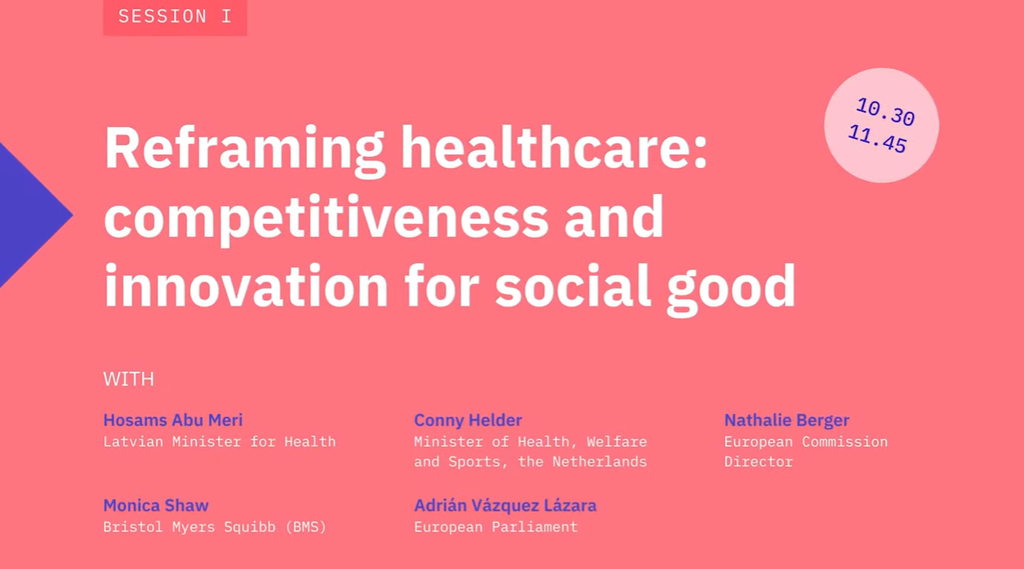Europe's moment: advancing clinical research and health innovation
Next event In person & online

- Area of Expertise
- Sustainable Livelihoods
Sustainable Livelihoods

Chief Operating Officer and Chief Spokesperson of Friends of Europe
The spread of the coronavirus has challenged a lot of Europe’s preconceived notions. Most notably, it has forced us to re-evaluate our approach to globalisation. Many of the widespread assumptions held about the international system have been called into question. Here are five key lessons we’ve already learned from it:
1. The populists were completely wrong about sovereignty. The impact of the virus throws into sharp focus that there is no such thing as a nation-state in full and sovereign control of its finances, trade and supply chains – it has effectively blown out the water arguments used by the populist governments and those spouting the rhetoric of ‘taking control’ of our borders, laws and economies. Even though countries are putting up their borders – the virus has shown it is borderless. It has exposed the reality of global, continent-wide and pan-regional supply chains – and how all economies rely on these.
2. Our approach to ‘industrial strategies’ needs to be turned on its head. The virus has skewered past grand notions about ‘strategies’. Any future industrial approach will have to think long and hard about the interdependencies between sectors, regions and countries across the globe. Managing, responding to and stabilising crises will have to be a key objective of any future strategy whilst finding clever ways to maintain growth. Perhaps an entirely different nature is needed, based on an alternative set of indices of success.
Unless we move past this endless cycle, how can we hope to become more crisis-savvy?
3. ‘Going it alone’ does not work. The crisis has laid bare that a unilateral approach is bound to fail. It has reinforced the need for multilateralism and improved global working arrangements whether that be in terms of digital, science, inter-regional cooperation or security. It has also revealed the poor and weak state of many current global and regional governance or cooperative mechanisms.
4. We need to overhaul our financial system. The impact of the virus on world economies is still too early to tell and the tailwind is yet to be experienced. But what we do know is that the usual fiscal monetary levers aren’t going to cut it in the same way as they did after the last financial crisis. Markets are highly irrational – investors act before they think, rushing to maximise return in the immediate term. This highly emotive behaviour has a direct result on communities in terms of the cost of goods, services and access to finance. Unless we move past this endless cycle, how can we hope to become more crisis-savvy?
5. International data-sharing is no longer optional. The response to COVID-19 demonstrates that ‘data sovereignty’ is already an obsolete, meaningless concept. As crises will continue to hit the world in quick succession, what is clear is that whether it’s in the field of science, health, security or social planning, finding a critical path to data-sharing is an urgent, strategic and global necessity. Without this, responses to crises will continue to hit and adversely affect the poorest, be it through delay, poor information management or the absence of a holistic economic, social and technological approach across borders.
The countless management theories, books and training clearly don’t fill what is an obvious vacuum in leadership development in a crisis
The response from governments to the crises has been telling on so many fronts – some noted above but most importantly, it has brought into sharp relief that they are simply not up to managing crises of this nature and scale. It is evident that there is very poor cross-government cooperation.
Whilst finely written disaster recovery plans have probably been in place across governments, the virus has shown that the governance at national, regional and globally is very poor. Agile decision making, as well as proactive and dynamic policy thinking and development is simply not in evidence. Added to this is the more worrying element – political leaders, senior officials and the personnel of public administrations are simply not fit for purpose in these circumstances.
Perhaps a key lesson to emerge from this crisis is how to enable leaders, officials and public administrations to be more agile, work outside silos and to develop a leadership capability that is actually able to handle, manage and lead in times of crises. The countless management theories, books and training clearly don’t fill what is an obvious vacuum in leadership development in a crisis.
What is now required is a more real-time, scenario-based learning style, which can help with preparedness. Future leaders will need to tackle dilemmas in the nexus of public safety, continuity of services and access to essentials whilst managing and abating the downward spiral of an economy.
Next event In person & online

Past event In person & livestreamed

Past event In person

Past event In person & livestreamed





Stay informed
We use cookies and similar technologies to adjust your preferences, analyze traffic and measure the effectiveness of our campaigns. Learn more about our privacy policy.